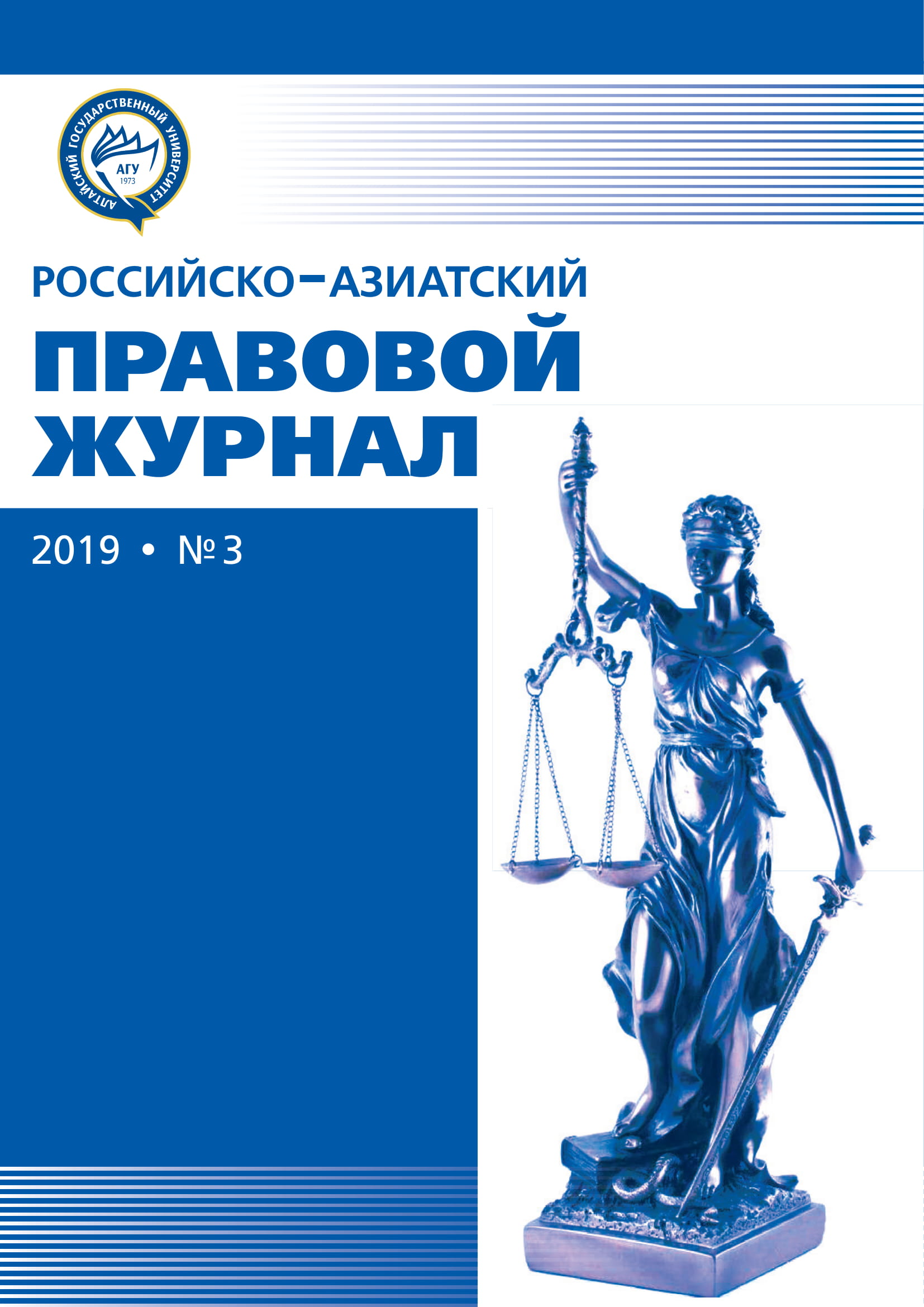TRANSFORMATION THE STATE SOVEREIGNTY CONCEPT IN THE CONTEXT OF GLOBALIZATION
УДК 340.5
Abstract
The article proposes to rethink the term “globalization” and emphasize the fact that globalization is not somuch an innovation of modern society as the historical phenomenon that has originated in antiquity and established itself during the formation of capitalist relations, which are predetermined its rapidly growing popularity.The scientific significance of the study lies in the comprehensive analysis of approaches to defining theconcept of «globalization» and assessing the level of globalization impact of on the concept of the sovereignty.Based on specific historical examples, the interrelation and interdependence of the market economy andglobalization processes, the inevitability of isolation the hegemonic states in the international arena, as wellas the regularity of their periodic change, are investigated.The authors conclude that in the context of globalization, the concept of sovereignty is significantly modified, so the main feature of the state is not so much the existence of sovereignty, but the claim to sovereignty.In conclusion, the author proposes an approach to the definition of the concept of the state and law inthe context of globalization. So, given the inevitability of hegemony and the impossibility of achieving fullsovereignty, the state should be understood as the limited territory claiming sovereignty, led by the politicalorganization that provides civil society management and aims to strengthen its economic position in thecapitalist interstate system.
Downloads
References
В.В. Сорокина. Барнаул, 2016.
2. Полетаева М.А. Глобализация как культурная проблема: анализ западного научного дискурса
(И. Валлерстайн и С. Хантигтон) // Вестник Моск. гос. лингвистич. ун-та. 2012. №11 (644).
3. Валлерстайн И. Анализ мировых систем и ситуация в современном мире : пер. с англ. П.М. Кудюкина / под ред. Б.Ю. Кагарлицкого. СПб., 2001.
4. Аттали Ж. Карл Маркс. Мировой дух. М., 2008.
5. Валлерстайн И. Исторический капитализм : пер. с англ. К.А. Фурсова. М., 2008.
6. Бродель Ф. Время мира. Материальная цивилизация, экономика и капитализм, XV–XVIII вв.
Т. 3 / под ред. Н.В. Рудницкой. М., 1992.
7. Бродель Ф. Игры обмена. Материальная цивилизация, экономика и капитализм, XV–XVIII вв.
Т. 2 : пер с фр. Л.Е. Куббеля. М., 2006.
8. Валлерстайн И. Миросистемный анализ: введение : пер. с англ. Н. Тюкиной. М., 2006.
9. Балибар Э., Валлерстайн И. Раса, нация, класс. Двусмысленные идентичности : пер с фр. / под.
ред. О. Никифорова и П. Хицкого. М., 2004.
10. Хабибуллина З.Р. Трансформация человеческого капитала в условиях развития инновационной экономики : дис. … канд. юрид. наук. Казань, 2015.
11. Бродель Ф. История и общественные науки. Историческая длительность / под ред. И.С. Кона //
Философия и методология истории. 2000.
Russian-Asian Law Journal is a golden publisher, as we allow self-archiving, but most importantly we are fully transparent about your rights.
Authors may present and discuss their findings ahead of publication: at scientific conferences, on preprint servers, in public databases, and in blogs, wikis, tweets, and other informal communication channels.
Russian-Asian Law Journal allows authors to deposit manuscripts (currently under review or those for intended submission) in non-commercial, pre-print servers such as ArXiv.
Authors who publish with this journal agree to the following terms:
- Authors retain copyright and grant the journal right of first publication with the work simultaneously licensed under a Creative Commons Attribution License that allows others to share the work with an acknowledgement of the work's authorship and initial publication in this journal.
- Authors are able to enter into separate, additional contractual arrangements for the non-exclusive distribution of the journal's published version of the work (e.g., post it to an institutional repository or publish it in a book), with an acknowledgement of its initial publication in this journal.
- Authors are permitted and encouraged to post their work online (e.g., in institutional repositories or on their website) prior to and during the submission process, as it can lead to productive exchanges, as well as earlier and greater citation of published work (See The Effect of Open Access).








